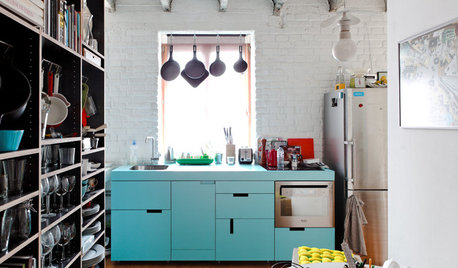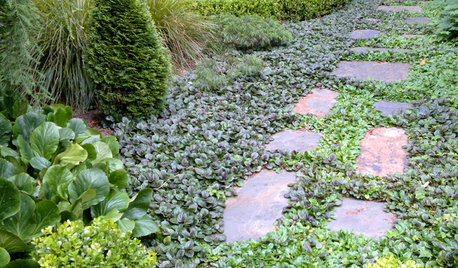toxic painted poured in soil
Laurel Zito
9 years ago
Related Stories

GARDENING GUIDESHow to Pick a Mulch — and Why Your Soil Wants It
There's more to topdressing than shredded wood. Learn about mulch types, costs and design considerations here
Full Story
LANDSCAPE DESIGNGarden Walls: Pour On the Style With Concrete
There's no end to what you — make that your contractor — can create using this strong and low-maintenance material
Full Story
HEALTHY HOMEDetox Your Kitchen for the Healthiest Cooking
Maybe you buy organic or even grow your own. But if your kitchen is toxic, you're only halfway to healthy
Full Story
HEALTHY HOMEGet the Lead Out: Lead Safety at Home
Keep your family safe by properly testing for and dealing with lead in old painted surfaces, water and soil
Full Story
EDIBLE GARDENSNatural Ways to Get Rid of Weeds in Your Garden
Use these techniques to help prevent the spread of weeds and to learn about your soil
Full Story
HEALTHY HOMESleep Happier and Healthier in a Toxin-Free Bedroom
Light pollution, toxic bedding, wallpaper that off-gases ... if you're not getting good sleep, these bedroom blights might be to blame
Full Story
DECORATING GUIDESGet the Scoop on Finding the Best Paint for Your Money
Scoring the best deal on paint for your home may have nothing to do with advertised specials
Full Story
GROUND COVERSGround Force: 10 Top Ground Covers for Your Garden
Protect your soil from weeds and drought this summer with a living mulch of ground covers
Full Story
GARDENING GUIDESNew Ways to Think About All That Mulch in the Garden
Before you go making a mountain out of a mulch hill, learn the facts about what your plants and soil really want
Full Story
GARDENING GUIDESGet on a Composting Kick (Hello, Free Fertilizer!)
Quit shelling out for pricey substitutes that aren’t even as good. Here’s how to give your soil the best while lightening your trash load
Full StoryMore Discussions






lazy_gardens
Laurel ZitoOriginal Author
Related Professionals
Camas Landscape Architects & Landscape Designers · Brentwood Landscape Contractors · Annandale Landscape Contractors · Eureka Landscape Contractors · La Vista Landscape Contractors · Olympia Landscape Contractors · Oviedo Landscape Contractors · Pine Hills Landscape Contractors · Tewksbury Landscape Contractors · Wentzville Landscape Contractors · West Chicago Landscape Contractors · Camp Springs Landscape Contractors · Canton Decks, Patios & Outdoor Enclosures · Prichard Decks, Patios & Outdoor Enclosures · Racine Decks, Patios & Outdoor Enclosuresericwi
wayne_5 zone 6a Central Indiana
Slimy_Okra
toxcrusadr
darth_weeder
Golden David
jean001a
Kimmsr
aachenelf z5 Mpls
Laurel ZitoOriginal Author
shuffles_gw
jean001a
Laurel ZitoOriginal Author
johns.coastal.patio
jean001a
floral_uk z.8/9 SW UK
Laurel ZitoOriginal Author
lazy_gardens
floral_uk z.8/9 SW UK
Mackel-in-DFW
toxcrusadr
Laurel ZitoOriginal Author
socalgal_gw Zone USDA 10b Sunset 24
lazy_gardens